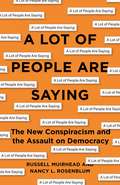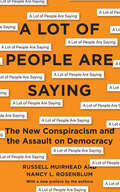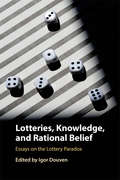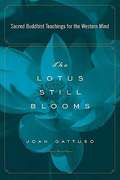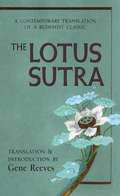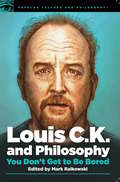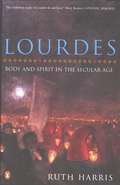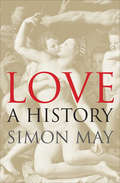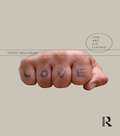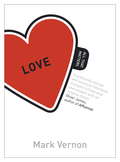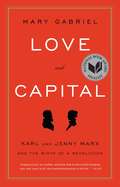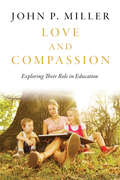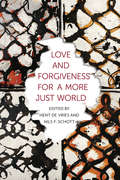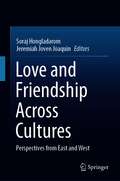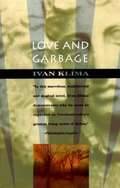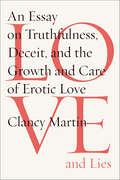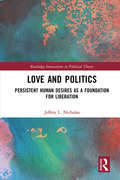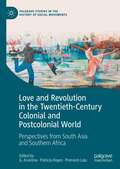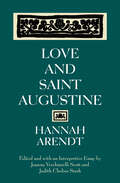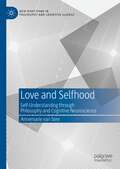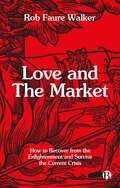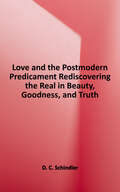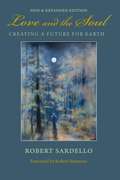- Table View
- List View
A Lot of People Are Saying: The New Conspiracism and the Assault on Democracy
by Nancy L. Rosenblum Russell MuirheadHow the new conspiracists are undermining democracy—and what can be done about itConspiracy theories are as old as politics. But conspiracists today have introduced something new—conspiracy without theory. And the new conspiracism has moved from the fringes to the heart of government with the election of Donald Trump. In A Lot of People Are Saying, Russell Muirhead and Nancy Rosenblum show how the new conspiracism differs from classic conspiracy theory, why so few officials speak truth to conspiracy, and what needs to be done to resist it.Classic conspiracy theory insists that things are not what they seem and gathers evidence—especially facts ominously withheld by official sources—to tease out secret machinations. The new conspiracism is different. There is no demand for evidence, no dots revealed to form a pattern, no close examination of shadowy plotters. Dispensing with the burden of explanation, the new conspiracism imposes its own reality through repetition (exemplified by the Trump catchphrase “a lot of people are saying”) and bare assertion (“rigged!”).The new conspiracism targets democratic foundations—political parties and knowledge-producing institutions. It makes it more difficult to argue, persuade, negotiate, compromise, and even to disagree. Ultimately, it delegitimates democracy.Filled with vivid examples, A Lot of People Are Saying diagnoses a defining and disorienting feature of today’s politics and offers a guide to responding to the threat.
A Lot of People Are Saying: The New Conspiracism and the Assault on Democracy
by Nancy L. Rosenblum Russell MuirheadHow the new conspiracists are undermining democracy—and what can be done about itConspiracy theories are as old as politics. But conspiracists today have introduced something new—conspiracy without theory. And the new conspiracism has moved from the fringes to the heart of government with the election of Donald Trump. In A Lot of People Are Saying, Russell Muirhead and Nancy Rosenblum show how the new conspiracism differs from classic conspiracy theory, how it undermines democracy, and what needs to be done to resist it.
Lotteries, Knowledge, and Rational Belief: Essays on the Lottery Paradox
by Igor DouvenWe talk and think about our beliefs both in a categorical (yes/no) and in a graded way. How do the two kinds of belief hang together? The most straightforward answer is that we believe something categorically if we believe it to a high enough degree. But this seemingly obvious, near-platitudinous claim is known to give rise to a paradox commonly known as the 'lottery paradox' – at least when it is coupled with some further seeming near-platitudes about belief. How to resolve that paradox has been a matter of intense philosophical debate for over fifty years. This volume offers a collection of newly commissioned essays on the subject, all of which provide compelling reasons for rethinking many of the fundamentals of the debate.
The Lotus Still Blooms
by Joan GattusoThe Lotus Still Blooms is the ideal book for every reader who would like to understand Buddhist principles, but doesn’t know where to start. Eastern wisdom traditions are often baffling for Western minds – where to begin in uncovering the often complicated steps, precepts, concepts and ideas? Aimed at people who are curious about Buddhism and want a basic book that will help them to understand – and apply – Buddhist principles in their life, The Lotus Still Blooms is a practical book that goes through all of the major Buddhist principles, step-by-step, and then shows how to apply them to our busy, hectic lives. Filled with Joan Gattuso’s trademark delightful stories and warmth, as well as exercises to help readers begin using the principles right away, this is a book that will be a welcomed new introduction to this exciting spiritual tradition. .
The Lotus Sutra
by Gene ReevesThe Lotus Sutra is regarded as one of the world's great religious scriptures and most influential texts. It's a seminal work in the development of Buddhism throughout East Asia and, by extension, in the development of Mahayana Buddhism throughout the world. Taking place in a vast and fantastical cosmic setting, the Lotus Sutra places emphasis on skillfully doing whatever is needed to serve and compassionately care for others, on breaking down distinctions between the fully enlightened buddha and the bodhisattva who vows to postpone salvation until all beings may share it, and especially on each and every being's innate capacity to become a buddha. Gene Reeves's new translation appeals to readers with little or no familiarity with technical Buddhist vocabulary, as well as long-time practitioners and students. In addition, this remarkable volume includes the full "threefold" text of this classic.
Louis C.K. and Philosophy
by Mark RalkowskiCharlie Rose has called Louis C.K. "the philosopher-king of comedy," and many have detected philosophical profundity in Louis's comedy, some of which has been watched tens of millions of times on YouTube and elsewhere. Louis C.K. and Philosophy is designed to help Louis's fans connect the dots between his pronouncements and living philosophical themes.Twenty-five philosophers examine the wisdom of Louis C.K. from a variety of philosophical perspectives. The chapters draw upon C.K.'s standup comedy, the show Louie, and C.K.'s other writings. There is no attempt to fit Louis into one philosophical school; instead the authors bring out the diverse aspects of the thought of Louis C.K.One writer looks at the different meanings of C.K.'s statement, "You're gonna be dead way longer than you were alive." Another explores how Louis knows when he's awake and when he's dreaming, taking a few tips from Descartes. One chapter shows the affinity of C.K.'s "sick of living this bullshit life" with Kierkegaard's "sickness unto death." Another pursues Louis's thought that we may by our lack of moral concern "live a really evil life without thinking about it." C.K.'s religion is "apathetic agnostic," conveyed in his thought experiment that God began work in 1982.
Lourdes: Body And Spirit in the Secular Age
by Ruth HarrisLourdes was at the very centre of nineteenth century debates on religion, science and medicine. Both the Church and secularists championed the 'miracle' town as crucial in shaping how society should think about the mind, body and spirit. Since the ‘visions’ of Bernadette Soubirous in 1858 transformed the quiet Pyrenean town into an international tourist and pilgrimage destination, it has been a site for controversy. In her well-crafted and carefully researched book, Harris deftly places Lourdes and its attendant spiritual movement firmly at the centre of French history and shows its significance in the country’s development.
Love: A History
by Simon May&“What is love? May plunders Western poetry, philosophy and psychology to find answers . . . Thought-provoking stuff&” (The Sunday Telegraph). Love—unconditional, selfless, unchanging, sincere, and totally accepting—is worshipped today as the West&’s only universal religion. To challenge it is one of our few remaining taboos. In this path-breaking and superbly written book, philosopher Simon May does just that, dissecting our ideas of love and showing how they are the product of a long and powerful cultural heritage. Tracing over twenty-five hundred years of human thought and history, May shows how our idea of love developed from its Hebraic and Greek origins alongside Christianity until, during the last two centuries, &“God is love&” became &“love is God&”—so hubristic, so escapist, so untruthful to the real nature of love, that it has booby-trapped relationships everywhere with deluded expectations. Brilliantly, May explores the very different philosophers and writers, both skeptics and believers, who dared to think differently: from Aristotle&’s perfect friendship and Ovid&’s celebration of sex and &“the chase,&” to Rousseau&’s personal authenticity, Nietzsche&’s affirmation, Freud&’s concepts of loss and mourning, and boredom in Proust. Against our belief that love is an all-powerful solution to finding meaning, security, and happiness in life, May reveals with great clarity what love actually is—and what it means. &“The most persuasive account of love&’s nature I have ever read.&” —Financial Times &“Intellectually engaging . . . Provocative.&” —The Wall Street Journal
Love: What Can We Care For? (The Art of Living)
by Tony MilliganWhat is love? What is it to be loved? Can we trust love? Is it overrated? These are just some of the questions Tony Milligan pursues in his novel exploration of a subject that has occupied philosophers since the time of Plato. Tackling the mood of pessimism about the nature of love that reaches back through Schopenhauer and Kierkegaard, he examines the links between love and grief, love and nature, and between love of others and loving oneself. We love too few things in the world, Milligan concludes, adding that we need to be loved too, to appreciate our own value and the worth of life itself.
Love: All That Matters
by Mark VernonLove: All That Matters argues that the modern view on love has been distorted by a fixation on romantic love that has depleted our resources for living through the darker sides of love, whereas in fact there are several ways in which humans give and experience love over the course of their lives and it is best to have access to them all.Vernon draws on science, psychology, philosophy and literature, to examine eight different kinds of love, each associated with a phase of human development. From infant narcissism and the emergence of eros, through puberty and the rush of romantic love, to the end of life and the love of God, this is a beguiling tour of the most mysterious force of all.This accessible and readable book will appeal to both students and general readers, giving a fascinating introduction to the psychology and philosophy of love - and what matters most about it.
Love: All That Matters (All That Matters)
by Mark VernonLove: All That Matters argues that the modern view on love has been distorted by a fixation on romantic love that has depleted our resources for living through the darker sides of love, whereas in fact there are several ways in which humans give and experience love over the course of their lives and it is best to have access to them all.Vernon draws on science, psychology, philosophy and literature, to examine eight different kinds of love, each associated with a phase of human development. From infant narcissism and the emergence of eros, through puberty and the rush of romantic love, to the end of life and the love of God, this is a beguiling tour of the most mysterious force of all.This accessible and readable book will appeal to both students and general readers, giving a fascinating introduction to the psychology and philosophy of love - and what matters most about it.
Love and Capital: Karl and Jenny Marx and the Birth of a Revolution
by Mary GabrielBrilliantly researched and wonderfully written, LOVE AND CAPITAL is a heartbreaking and dramatic saga of the family side of the man whose works would redefine the world after his death. Drawing upon years of research, acclaimed biographer Mary Gabriel brings to light the story of Karl and Jenny Marx's marriage. We follow them as they roam Europe, on the run from governments amidst an age of revolution and a secret network of would-be revolutionaries, and see Karl not only as an intellectual, but as a protective father and loving husband, a revolutionary, a jokester, a man of tremendous passions, both political and personal. In LOVE AND CAPITAL, Mary Gabriel has given us a vivid, resplendent, and truly human portrait of the Marxes-their desires, heartbreak and devotion to each other's ideals.
Love and Compassion: Exploring their Role in Education
by John P. MillerAcademics often speak about love for their subject, mathematicians discuss their love for figures and numbers, and elementary school teachers speak about their love of children. As multidimensional as love is, it is often a taboo subject relative to teachers and students. In Love and Compassion, John P. Miller explores different forms of love, including self-love, the love of others, compassion, the love of learning, and cosmic love, and how these dimensions of love have the potential to improve education. Love and Compassion is both a practical and conceptual work, and will interest those involved in the study and practise of holistic and contemplative education. In addition to the seven dimensions of love, Miller’s evaluation includes nonviolent action, the love of beauty, and how they are crucial to the practise of teaching.
Love and Forgiveness for a More Just World (Religion, Culture, and Public Life #24)
by Hent De Vries Nils SchottOne can love and not forgive or out of love decide not to forgive. Or one can forgive but not love, or choose to forgive but not love the ones forgiven. Love and forgiveness follow parallel and largely independent paths, a truth we fail to acknowledge when we pressure others to both love and forgive. Individuals in conflict, sparring social and ethnic groups, warring religious communities, and insecure nations often do not need to pursue love and forgiveness to achieve peace of mind and heart. They need to remain attentive to the needs of others, an alertness that prompts either love or forgiveness to respond. By reorienting our perception of these enduring phenomena, the contributors to this volume inspire new applications for love and forgiveness in an increasingly globalized and no longer quite secular world. With contributions by the renowned French philosophers Jacques Derrida and Jean-Luc Marion, the poet Haleh Liza Gafori, and scholars of religion (Leora Batnitzky, Nils F. Schott, Hent de Vries), psychoanalysis (Albert Mason, Orna Ophir), Islamic and political philosophy (Sari Nusseibeh), and the Bible and literature (Regina Schwartz), this anthology reconstructs the historical and conceptual lineage of love and forgiveness and their fraught relationship over time. By examining how we have used—and misused—these concepts, the authors advance a better understanding of their ability to unite different individuals and emerging groups around a shared engagement for freedom and equality, peace and solidarity.
Love and Friendship Across Cultures: Perspectives from East and West
by Soraj Hongladarom Jeremiah Joven JoaquinThis collection brings together different philosophical points of view discussing two important aspects of human life, namely love and friendship, within the broad context of comparative philosophy. These points of view differ in terms of their cultural orientations - East or West, ancient or modern; philosophical methodologies - analytical, historical, experimental, or phenomenological, broadly construed; and motivation - explanatory, revisionary, or argumentative. The volume is a comparative treatment of how diverse philosophical cultures view love and friendship, such as how Aristotle and Confucius’ views on friendship are similar and different, how the ancient Greeks and the Buddhists view friendship and happiness, and how posthumous love is possible. With contributions from a diverse set of scholars, this book presents the emerging views of Southeast Asian philosophers compared with those of philosophers from other regions, including Europe and North America. The volume thus provides a multi-faceted way of understanding love and friendship across cultures, and will be relevant to scholars interested in philosophy, the history of ideas, Asian Studies, and religious studies.
Love and Garbage
by Ivan Klíma Ewald OsersThe narrator has temporarily abandoned his work-in-progress – an essay on Kafka – and exchanged his writer’s pen for the orange vest of a Prague road-sweeper. As he works, he meditates on Czechoslovakia, on Kafka, on life, on art and, obsessively, on his passionate and adulterous love affair with the sculptress Daria.
Love and Lies: An Essay on Truthfulness, Deceit, and the Growth and Care of Erotic Love
by Clancy MartinA provocative and unsettling look at the nature of love and deceptionIs it possible to love well without lying? At least since Socrates's discourse on love in Plato's Symposium, philosophers have argued that love can lead us to the truth—about ourselves and the ones we love. But in the practical experience of erotic love—and perhaps especially in marriage—we find that love and lies often work hand in hand, and that it may be difficult to sustain long-term romantic love without deception, both of oneself and of others. Drawing on contemporary philosophy, psychoanalysis and cognitive neuroscience, his own personal experience, and such famed and diverse writers on love as Shakespeare, Stendhal, Proust, Adrienne Rich, and Raymond Carver, Clancy Martin—himself divorced twice and married three times—explores how love, truthfulness, and deception work together in contemporary life and society. He concludes that learning how to love and loving well inevitably requires lying, but also argues that the best love relationships draw us slowly and with difficulty toward honesty and trust.Love and Lies is a relentlessly honest book about the difficulty of love, which is certain to both provoke and entertain.
Love and Objectivity in Virtue Ethics
by Robert J. FittererSince the Enlightenment, a great deal of ethical philosophy has presumed that rational human beings must set aside their emotions when seeking to make objective and sound moral decisions. Love and Objectivity in Virtue Ethics challenges this presumption, arguing that emotions such as compassion and love are powerful aids in the complex process of attaining objective moral truths in decisions and actions. Drawing on Aristotle's Nicomachean Ethics and the work of Bernard Lonergan and Martha Nussbaum, Robert J. Fitterer tests the assumption that the inclusion of the emotions leads to bias in objective judgments or when determining moral truths. Fitterer first demonstrates how certain cognitive operations set out in Aristotelian virtue ethics can indeed arrive at objective moral truth precisely through the contribution emotions make in moral discernment. Then, drawing on Lonergan's notion of inductive insight, he argues that objectivity is the result of the properly functioning subjectivity of a moral agent. Finally, building on his study of Nussbaum's ethical writings, Fitterer concludes that compassionate love is an attitude that actually fosters the likelihood of discerning and choosing the genuine good, and encourages objectivity in moral decision-making. Richly detailed and argued, Love and Objectivity in Virtue Ethics is a convincing study that involves the works of three of the most important writers on ethics and a passionate appeal to re-examine the process through which humans genuinely make vitally important decisions.
Love and Politics: Persistent Human Desires as a Foundation for Liberation (Routledge Innovations in Political Theory)
by Jeffery L. NicholasIn, Love and Politics Jeffery L. Nicholas argues that Eros is the final rejection of an alienated life, in which humans are prevented from developing their human powers; Eros, in contrast, is an overflowing of acting into new realities and new beauties, a world in which human beings extend their powers and senses. Nicholas uniquely interprets Alasdair MacIntyre’s Revolutionary Aristotelianism as a response to alienation defined as the divorce of fact from value. However, this account cannot address alienation in the form of the oppression of women or people of color. Importantly, it fails to acknowledge the domination of nature that blackens the heart of alienated life. Alienation must be seen as a separation of the human from nature. Nicholas turns to Aristotle, first, to uncover the way his philosophy embodies a divorce of human from nature, then to reconstruct the essential elements of Aristotle’s metaphysics to defend a philosophical anthropology based on Eros. Love and Politics: Persistent Human Desires as a Foundation for Liberation presents a critical theory that synthesizes MacIntyre’s Revolutionary Aristotelianism, Frankfurt School Critical Theory, and Social Reproduction Theory. It will be of great interest to political theorists and philosophers.
Love and Revolution in the Twentieth-Century Colonial and Postcolonial World: Perspectives from South Asia and Southern Africa (Palgrave Studies in the History of Social Movements)
by G. Arunima Patricia Hayes Premesh LaluThis book addresses emancipatory narratives from two main sites in the colonial world, the Indian and southern African subcontinents. Exploring how love and revolution interrelate, this volume is unique in drawing on theories of affect to interrogate histories of the political, thus linking love and revolution together. The chapters engage with the affinities of those who live with their colonial pasts: crises of expectations, colonial national convulsions, memories of anti-colonial solidarity, even shared radical libraries. It calls attention to the specific and singular way in which notions of ‘love of the world’ were born in a precise moment of anti-colonial struggle: a love of the world for which one would offer one’s life, and for which there had been little precedent in the history of earlier revolutions. It thus offers new ways of understanding the shifts in global traditions of emancipation over two centuries.
Love and Saint Augustine
by Hannah ArendtThe brilliant thinker who taught us about the banality of evil explores another brilliant thinker and his concept of love. Hannah Arendt, the author of The Origins of Totalitarianism and The Human Condition, began her scholarly career with an exploration of Saint Augustine&’s concept of caritas, or neighborly love, written under the direction of Karl Jaspers and the influence of Martin Heidegger. After her German academic life came to a halt in 1933, Arendt carried her dissertation into exile in France, and years later took the same battered and stained copy to New York. During the late 1950s and early 1960s, as she was completing or reworking her most influential studies of political life, Arendt was simultaneously annotating and revising her dissertation on Augustine, amplifying its argument with terms and concepts she was using in her political works of the same period. The dissertation became a bridge over which Arendt traveled back and forth between 1929 Heidelberg and 1960s New York, carrying with her Augustine's question about the possibility of social life in an age of rapid political and moral change. In Love and Saint Augustine, political science professor Joanna Vecchiarelli Scott and philosophy professor Judith Chelius Stark make this important early work accessible for the first time. Here is a completely corrected and revised English translation that incorporates Arendt&’s own substantial revisions and provides additional notes based on letters, contracts, and other documents as well as the recollections of Arendt's friends and colleagues during her later years. &“Both the dissertation and the accompanying essay are accessible to informed lay readers. Scott and Stark's conclusions about the cohesive evolution of Arendt&’s thought are compelling but leave room for continuing discussion.&”—Library Journal &“A revelation.&”—Kirkus Reviews
Love and Selfhood: Self-understanding Through Philosophy and Cognitive Neuroscience (New Directions in Philosophy and Cognitive Science)
by Annemarie van SteeAfter years of neurohype and a neuroskeptic backlash, this book provides a systematic analysis of the contributions to self-understanding cognitive neuroscience (CNS) and philosophy can make. The stories of five people in search of self-understanding serve as touchstone throughout the book. Their identities are tied up with what they love. The book provides in-depth analyses of CNS of love and CNS of self-reflection. It critically discusses philosophers who focus on the relation between love, self-understanding and selfhood, such as Harry Frankfurt, Susan Wolf, Charles Taylor and Søren Kierkegaard. It also builds an argument about CNS’ contributions to self-understanding more broadly, and how different these are from philosophy’s contributions. The book develops conceptual review as a philosophical method for improving the validity and comparability of CNS studies. It integrates CNS insights into its philosophical view on love and selfhood where applicable. This book thus argues and exemplifies that philosophy and CNS can work together.
Love and the Market: How to Recover from the Enlightenment and Survive the Current Crisis
by Rob Faure WalkerLove is fundamental to the flourishing of society and nature. However, the competition of the market economy has resulted in a fractured and traumatized modern world. Revisiting philosophical developments and countercultures since the Enlightenment, this book offers a ‘loving critique’. It shows how learning to love better is the key to releasing ourselves from the alienating grip of the market. The utopian template presented draws on archaeology, the witch trials, hippies, Hinduism, Buddhism, quantum mechanics and psychedelics to describe how we can build a more loving society that can survive and flourish through the ecological, ethical, economic and existential crises that we all now face.
Love and the Postmodern Predicament: Rediscovering the Real in Beauty, Goodness, and Truth (Veritas)
by D. C. SchindlerThe computer has increasingly become the principal model for the mind, which means our most basic experience of "reality" is mediated through a screen, or stored in a cloud. As a result, we are losing a sense of the concrete and imposing presence of the real, and the fundamental claim it makes on us, a claim that Iris Murdoch once described as the essence of love. In response to this postmodern predicament, the present book aims to draw on the classical philosophical tradition in order to articulate a robust philosophical anthropology, and a new appreciation of the importance of the "transcendental properties" of being: beauty, goodness, and truth. <p><p>The book begins with a reflection on the importance of metaphysics in our contemporary setting, and then presents the human person's relation to the world under the signs of the transcendentals: beauty is the gracious invitation into reality, goodness is the self-gift of freedom in response to this invitation, and truth is the consummation of our relation to the real in knowledge. The book culminates in an argument for why love is ultimately a matter of being, and why metaphysical reason is indispensable in faith.
Love and the Soul: Creating a Future for Earth
by Robert SardelloWith economies in peril, war in the Middle East, genocides, global warming, and a host of other grim phenomena, the world has never seemed so besieged. The solution, says Robert Sardello, lies with the individual. In this timely, thoughtful book, he explains how the soul can engage with the outer world to produce radical change. Because we think of the world as a vast mechanism and behave as mechanical objects in it, the results are devastation and dysfunction. The key is to learn to identify with the plight of the Earth by developing a true sense of individual imagination and conscious awareness of inner purpose and beauty in conjunction with the soul of the world. Sardello shows how to achieve this awareness and bring what is inside out into the world, inspiring balance and stability. Using the Grail legend and the myth of Sophia--known as the Soul of the World--as well as writings by Jung, James Hillman, and Rudolf Steiner,Love and the Soulhelps readers imagine a revitalized Earth by exploring the significance of grieving, the transformative power of radical receptivity, the creative power of dreaming, and a new basis for community.
